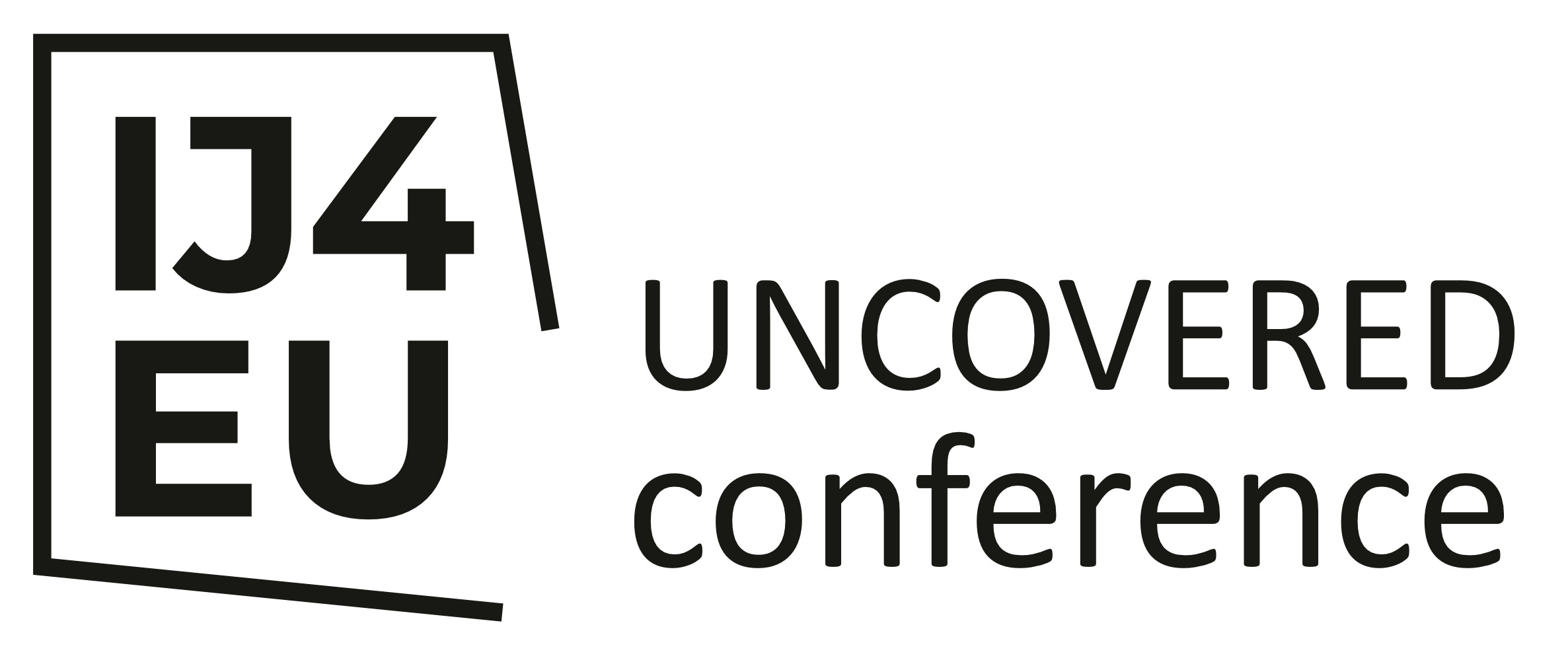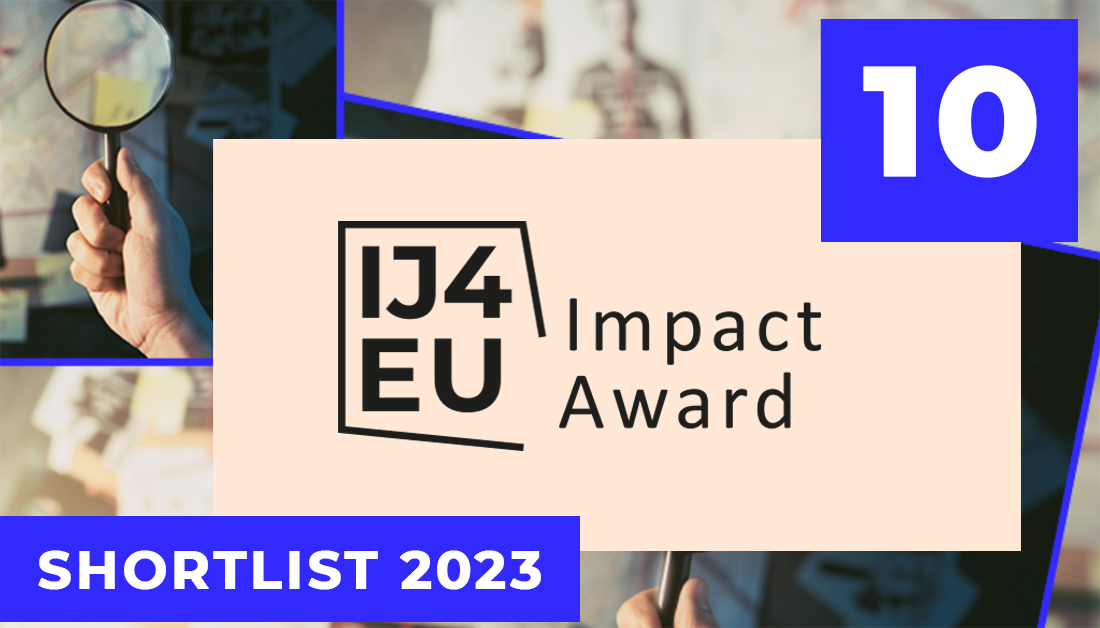Winners of Europe’s leading prize for cross-border investigative journalism will be announced on March 31.
Ten investigations have been shortlisted for the third annual IJ4EU Impact Award, celebrating excellence in cross-border watchdog journalism in Europe.
Three winning teams will each get €5,000 in recognition of their work collaborating on stories that transcend national frontiers. Winners will be announced at an award ceremony in Leipzig, Germany, on March 31.
Here are the 10 shortlisted entries, in alphabetical order and selected from a pool of nominations by independent evaluators assembled by the European Centre for Press and Media Freedom (ECPMF), a partner in the IJ4EU consortium.
Behind the Belarusian Sanctions
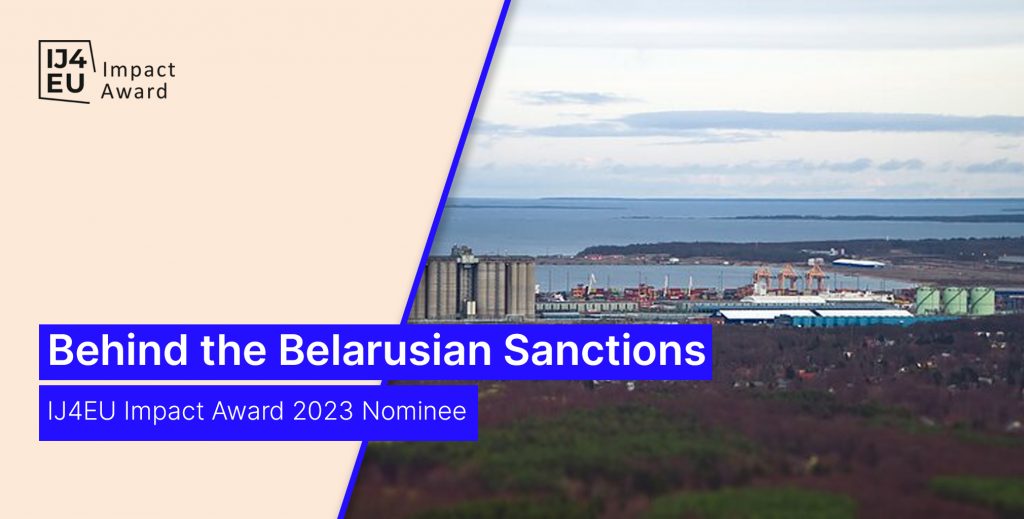
Despite harsh EU sanctions, Belarusian oil exports to Estonia reached record levels in 2021. Journalists from investigative centres and news outlets in four countries — Re:Baltica in Latvia, Delfi in Estonia, Siena in Lithuania and the Belarusian Investigative Center — reveal how the trade, initiated by the oligarch dubbed the “energy wallet of Lukashenko”, has been set up.
Black and White: Discrimination in the exodus from Ukraine
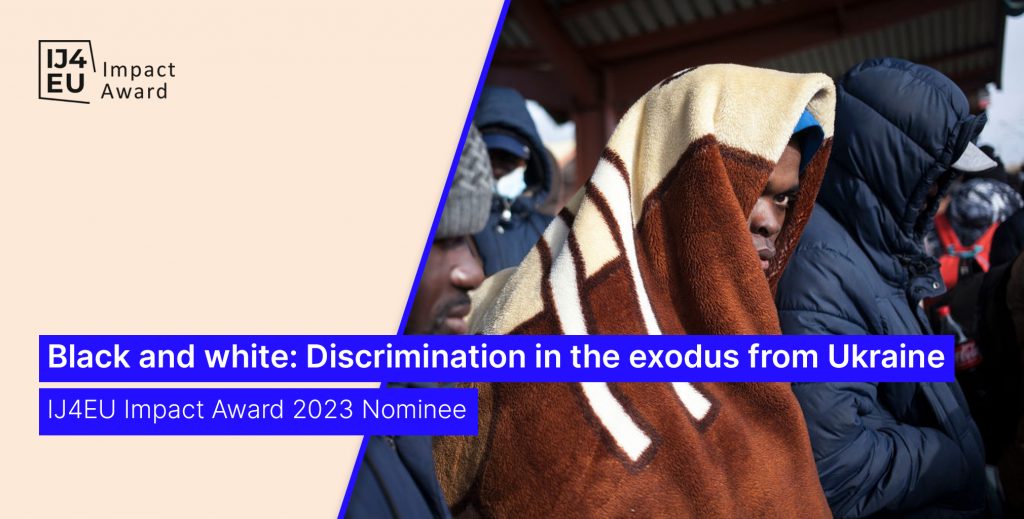
As Europe focused on the mass of people fleeing Ukraine following Russia’s invasion last year, Dutch investigative non-profit LightHouse Reports identified an underreported aspect of the exodus: discrimination of non-Western residents as they tried to escape. Twenty-one journalists from eight countries set out to explore and illuminate the disturbingly unequal treatment of certain refugees that was otherwise going largely unnoticed.
Migrant Boat Drivers in the Dock
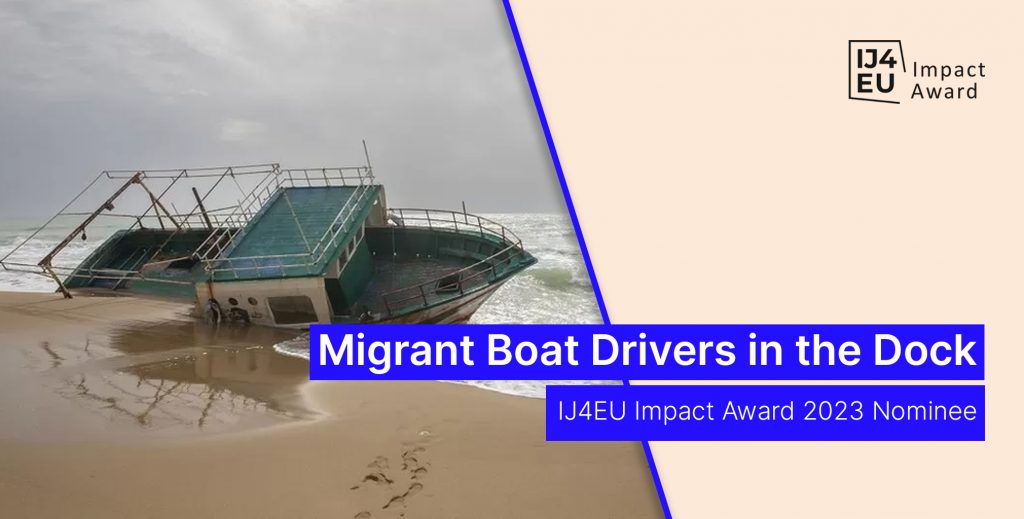
Over the past decade, Greek, Spanish and Italian border guards have increasingly targeted the drivers of migrant boats arriving on their countries’ shores, in their quest for someone to blame for “illegal” migration. Thousands of people, usually migrants themselves, have been arrested. Some may have been paid to drive the boat, others forced at gunpoint. Among them are unaccompanied minors, reveals this investigation by Lost in Europe.
Mining Secrets
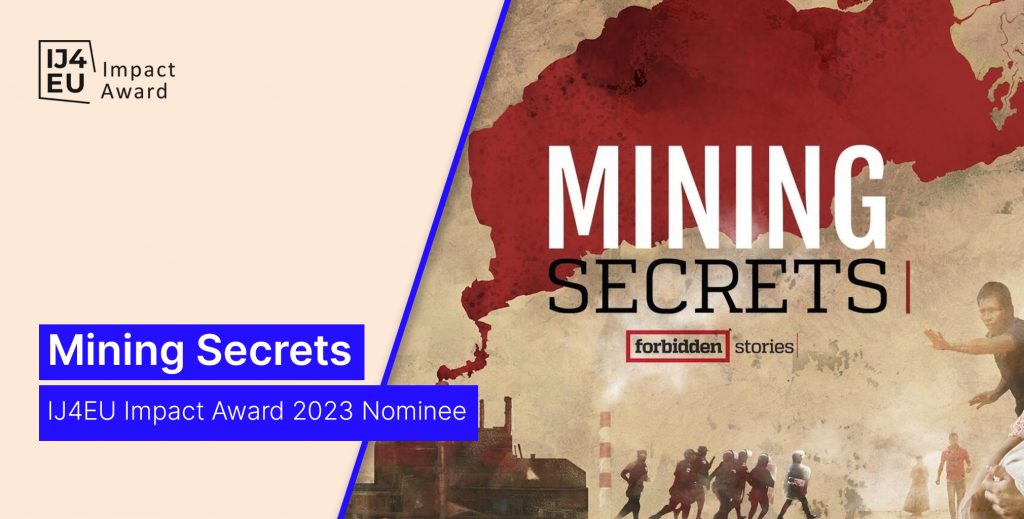
Sixty-five journalists, coordinated by Forbidden Stories, came together to pursue the work of colleagues threatened for investigating environmental scandals in Guatemala. Drawing on hundreds of thousands of leaked documents, the team revealed how journalists who reported on a powerful mining conglomerate were systematically profiled, surveilled and even followed by drones.
Suisse Secrets
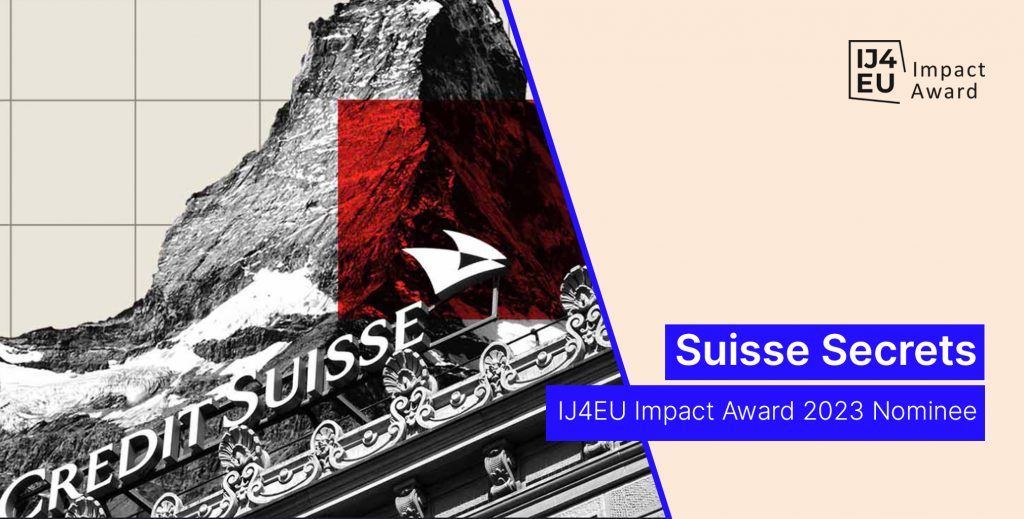
Led by the Organized Crime and Reporting Project and German newspaper Süddeutsche Zeitung, Suisse Secrets brought together more than 160 journalists from 48 outlets on five continents to investigate leaked records containing 18,000 Credit Suisse accounts, the largest leak ever from a major Swiss bank.
The China Science Investigation
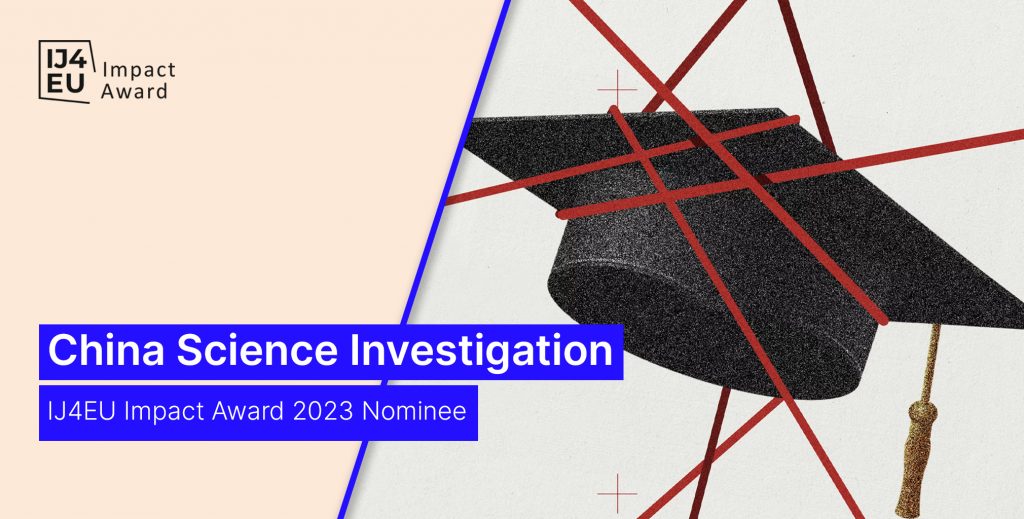
Are European scientists contributing to China’s quest to become a military superpower? This project led by Dutch investigative platform Follow the Money involved 30 journalists from seven countries who analysed more than 350,000 scientific papers involving collaborations between China and Europe. They found that nearly 3,000 were by researchers affiliated with European universities and their counterparts at military-linked institutions in China.
The Devil is in the Data
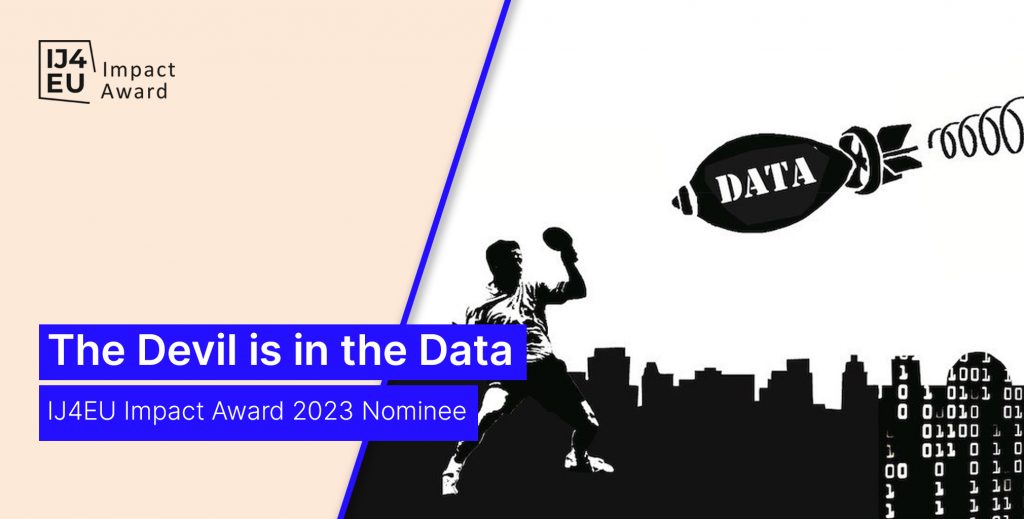
This undercover investigation by a group of freelancers in four countries reveals how live data fed to the sports betting industry can create a fertile ground for match-fixing. The journalists involved were Andy Brown, Philippe Auclair, Steve Menary and Jack Kerr.
The Ericsson List

Based on a leaked internal compliance report, this investigation reveals that the Swedish-based multinational sought permission from Islamic State extremists to work in an ISIS-controlled city in Iraq and paid to smuggle equipment into ISIS areas on a route known as the “Speedway”. Led by the International Consortium of Investigative Journalists, the project involved 31 media partners in 22 countries.
The Xinjiang Police Files

In recent years, the Chinese state has allegedly locked away a million Uyghurs in internment camps. This project attaches names and faces to this brutal system, providing an unprecedented look behind the veil of secrecy. Involving journalists based in eight countries, the investigation was carried out by a team of independent outlets brought together by German news site Der Spiegel.
Unmasking Europe’s Shadow Armies
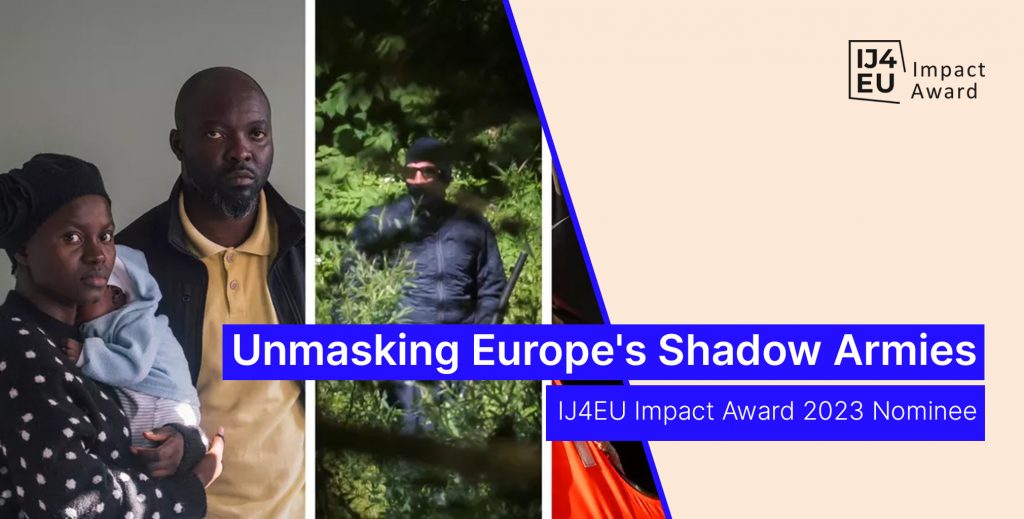
This investigation led by LightHouse Reports, a Dutch-based non-profit that works with newsrooms across Europe, exposes the mysterious men in masks who beat refugees at Europe’s borders. It gives the most detailed picture yet of a previously deniable campaign of illegal, violent “pushbacks” in Croatia, Greece and Romania by masked men whose uniforms have been stripped of any identifying details.
Recognising resilience
The IJ4EU Impact Award ceremony will act as a finale to the MFRR Summit 2023, the annual gathering of the Media Freedom Rapid Response (MFRR) mechanism, which supports and protects journalists in EU member states and candidate countries.
By hosting the awards at the summit, the IJ4EU fund seeks to underline the bravery and resilience of investigative journalists in the face of growing assaults on media freedom and pluralism.
Winners will be selected by an independent jury chaired by Joanna Krawczyk, deputy director of the German Marshall Fund of the United States and member of the management board of the European Media and Information Fund.
The award is open to cross-border journalistic teams of any kind, regardless of whether or not they have received support from the IJ4EU fund. Among this year’s shortlisted nominations, three teams received IJ4EU support. They were Behind the Belarusian Sanctions, Migrant Boat Drivers in the Dock and The Devil in the Data.
Both the MFRR Summit and the IJ4EU Impact Award are run by ECPMF. The International Press Institute, which leads the IJ4EU consortium, is also a member of the MFRR mechanism.
The awards will be livestreamed on March 31 on the ECPMF YouTube channel. For more information, check out the MFRR Summit microsite.
